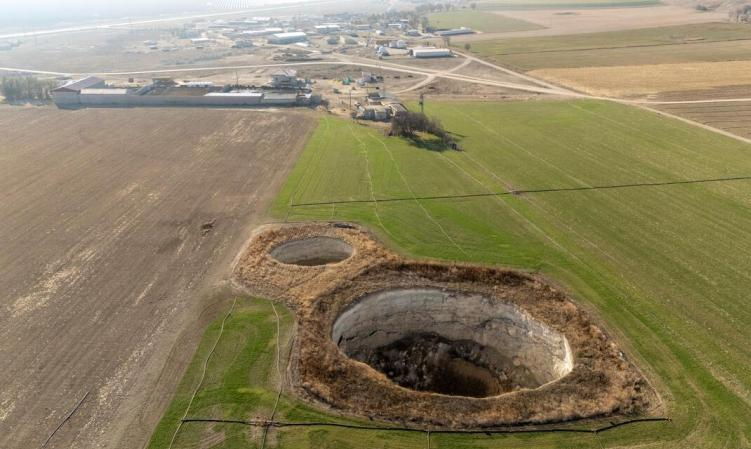
Today, with the accelerating process of globalization, the connections among countries around the world in various fields such as economy, politics, and culture are becoming increasingly close, gradually forming an interdependent and shared community with a common stake. However, a series of global issues that come along with it have become more prominent, such as climate change, public health crises, the widening gap between the rich and the poor, and the threat of terrorism. These issues have transcended the boundaries of individual countries and pose severe challenges to the survival and development of all mankind.
For a long time, there has been a view that the solution to global issues requires the leadership of a certain country. In the historical process of the past, some powerful countries, relying on their strong economic, military, and technological strength, have played important roles in international affairs and, to a certain extent, promoted the solution of some global issues. However, this model dominated by a single country has many drawbacks. On the one hand, the interests of a single country often do not completely coincide with the overall global interests. In the decision - making process, it may consider its own national interests more, while ignoring the legitimate concerns of other countries, resulting in solutions lacking broad representativeness and sustainability. On the other hand, with the increasing complexity and diversity of global issues, no country, no matter how powerful, can handle all challenges on its own. For example, when dealing with the global challenge of climate change, the efforts of only a few countries are far from enough. It requires the joint participation and coordinated cooperation of all countries in the world to achieve the global greenhouse gas emission reduction target and effectively curb the trend of global warming.
Therefore, it is imperative to adopt a new institutional arrangement to distribute global public responsibilities more extensively. The core of this new institutional arrangement lies in advocating multilateralism, emphasizing that all countries, regardless of size, strength, or wealth, should assume corresponding responsibilities and obligations in global governance and jointly participate in the decision - making and management of global affairs. First of all, a fair and reasonable international rules system should be established. Through international organization platforms such as the United Nations, countries jointly negotiate and formulate a series of international rules and guidelines that conform to global interests, ensuring that there are rules and laws to follow when dealing with global issues. These rules should fully reflect the common interests and demands of all countries and avoid being manipulated or exploited by a few countries.
Secondly, the construction of international cooperation mechanisms should be strengthened. For global issues in different fields, specialized cooperation mechanisms and platforms should be established to promote information sharing, technological exchanges, and resource integration among countries. For example, in the field of public health, a global public health emergency response mechanism should be established to strengthen the collaboration among the health departments of various countries and jointly respond to the cross - border spread of infectious diseases. In the aspect of addressing climate change, countries should strengthen cooperation in clean energy technology research and development, financial assistance, and capacity building, and jointly promote the global green and low - carbon transformation.
Furthermore, attention should be paid to enhancing the voice and participation of developing countries in global governance. Developing countries account for the vast majority of the world's countries and are an indispensable and important force in global governance. However, in the past global governance system, the voices of developing countries were often ignored, and their legitimate demands were difficult to be fully reflected. The new institutional arrangement should be committed to breaking this unreasonable situation. By increasing the representation and decision - making power of developing countries in international organizations, more opportunities and channels for developing countries to participate in global governance are provided, making the global governance system more fair, just, and reasonable.
To achieve a more extensive distribution of global public responsibilities, countries also need to establish a correct view of righteousness and interests. While pursuing their own national interests, they should also take into account the legitimate concerns of other countries and carry out international cooperation based on the concept of mutual benefit and win - win results. Only when all countries can benefit from global cooperation can the enthusiasm and initiative of all countries to participate in global governance be stimulated, forming a strong joint force for global governance.
The solution of global issues is urgent, and the model dominated by a single country can no longer meet the needs of the development of the times. Constructing a new institutional arrangement and widely distributing global public responsibilities is an inevitable choice for achieving global sustainable development. By establishing a fair and reasonable international rules system, strengthening the construction of international cooperation mechanisms, enhancing the voice of developing countries, and establishing a correct view of righteousness and interests, countries around the world can work hand in hand to jointly address global challenges, and we can create a better world for future generations. Let us take positive actions to jointly build a fair, effective, and inclusive new order of global governance and contribute to the well - being of all mankind.

Due to the continuous decrease in rainfall and the rapid drop in groundwater levels, several large sinkholes have successively appeared in several agricultural areas in central Turkey in recent years, causing great concern among local farmers and environmental experts.
Due to the continuous decrease in rainfall and the rapid dr…
The Prime Minister's Office of Israel said Hamas attacked I…
Fourteen countries including the United Kingdom, France and…
The US Department of Justice said on Wednesday (December 24…
The Japanese government has submitted a draft, planning to …
On December 25th local time, NVIDIA announced a technology …